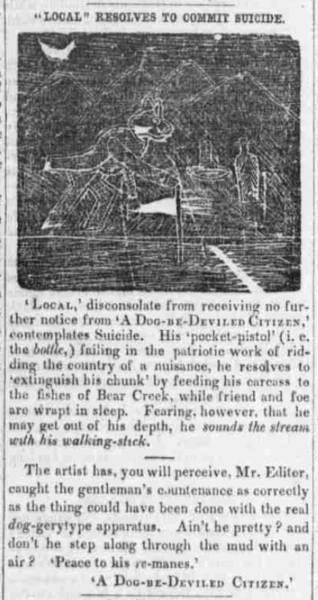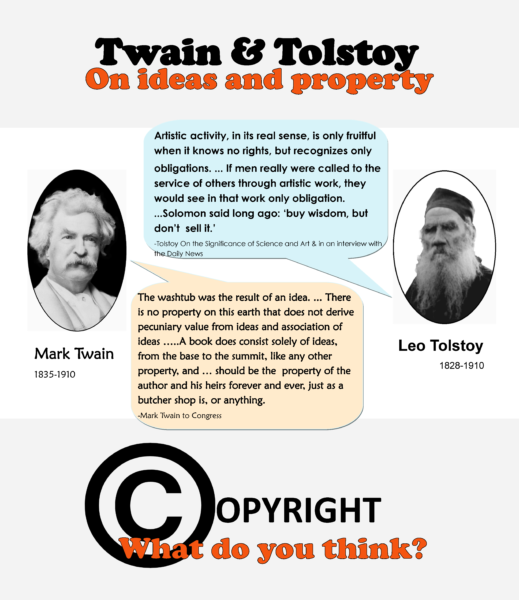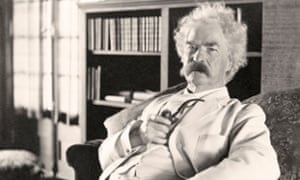 I thought that I was a fan of Mark Twain’s work, though I would usually specify that I enjoyed his essays and sketches more than the novels he is typically known for. I have to admit, I am not a very good fan, perhaps of anything, because it never occurred to me to find out any more. I never knew that while working as a typesetting apprentice on his older brother’s newspaper he began penning humorous stories under pseudonyms, or that he would continue this pseudonymous writing on other papers. I knew that Mark Twain was a pseudonym, but I never knew that it was simply a later and greater pseudonym that followed: W. Epaminondas Adrastus Perkins, W. Epaminondas Adrastus Blab, Rambler, grumbler, Peter Pencilcase’s Son, John Snooks, and Thomas Jefferson Snodgrass, and A Dog-Be-Deviled Citizen… A curious and, perhaps tenacious, view through Chronicling America can call up some of these early articles (example left from the Hannibal Journal September 16, 1852).
I thought that I was a fan of Mark Twain’s work, though I would usually specify that I enjoyed his essays and sketches more than the novels he is typically known for. I have to admit, I am not a very good fan, perhaps of anything, because it never occurred to me to find out any more. I never knew that while working as a typesetting apprentice on his older brother’s newspaper he began penning humorous stories under pseudonyms, or that he would continue this pseudonymous writing on other papers. I knew that Mark Twain was a pseudonym, but I never knew that it was simply a later and greater pseudonym that followed: W. Epaminondas Adrastus Perkins, W. Epaminondas Adrastus Blab, Rambler, grumbler, Peter Pencilcase’s Son, John Snooks, and Thomas Jefferson Snodgrass, and A Dog-Be-Deviled Citizen… A curious and, perhaps tenacious, view through Chronicling America can call up some of these early articles (example left from the Hannibal Journal September 16, 1852).
My fandom was renewed recently when reading Kipling’s account of searching out and meeting Mr. Samuel Clemens in his 1890 ‘Letter Twenty: Rudyard Kipling on Mark Twain’ in Kipling’s America: Travel Letters, 1889-1895. Of course their conversation turned to copyright as it was one of Mr. Clemens’ favorite topics of the time. Of course this is what I was looking for, as it is one of my favorite topics now.
For those of you who, like me, may want to improve their fandom of Mark Twain I highly recommend the PBS Documentary.



